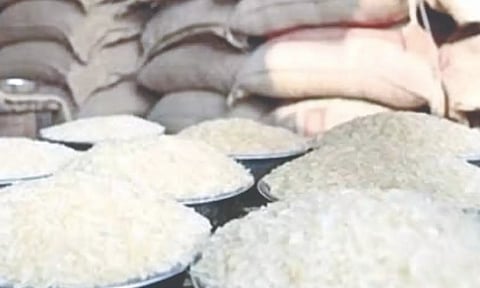

MADURAI: The increasing trend of price of different rice varieties has become an issue for consumers and merchants alike.
According to M Chandramohan, president, Madurai District Rice Mill Owners Association, poor rainfall during summer and weak southwest monsoon are to blame for the yield decline.
The increase in paddy procurement price by Rs 8 per kg (from Rs 26 to Rs 34) is another major factor that forced the merchants to increase the rates and the trend is likely to continue for another three or four months that is till the next harvest season, he told DT Next.
K Vasanthavel, a member of the Federation of Paddy and Rice Dealers Association, Tamil Nadu, said except for the after fine varieties, prices of other varieties have not gone up much. He also added that 20 per cent GST on some rice varieties discouraged exports.
Earlier, processed rice varieties were shipped from Tamil Nadu to European countries, Australia, Malaysia, Singapore and Sri Lanka.
K Rajendran, former general secretary of the Association, said he had seen an unprecedented rise in the price of rice varieties this year up to Rs 10 per kg. He said a ban on the export of some rice varieties helped curtail the rising price to a significant level.
KM Raja, secretary, Madurai District Rice Traders Association, said there were about 50 rice varieties in store at a minimum price of Rs 40 to a maximum of Rs 65 per kg.
T Perumal, national vice president, Bharatiya Kisan Sangh, Madurai, said not only the consumers and rice merchants were affected, but also the paddy farmers, who are facing a severe agricultural labour shortage, have been hit.
“It costs Rs 42 to produce one kg of paddy. But, the government fixed only Rs 23 per kg at direct paddy procurement centres,” he said, adding that many farmers, who are unable to bear the loss, have given up cultivation.
“A recent survey said paddy cultivation suffered a decline by 17 per cent across India last year and it has predicted a shortfall of about 35 per cent this year,” he said.
JP Joe Villavarayar, president, Tuticorin Hub Port Development Council, said prior to the export ban this year, average monthly shipments of rice varieties were about 3,000 tonnes to 5,000 tonnes from the VOC Portto the US, the UK and the Gulf countries.